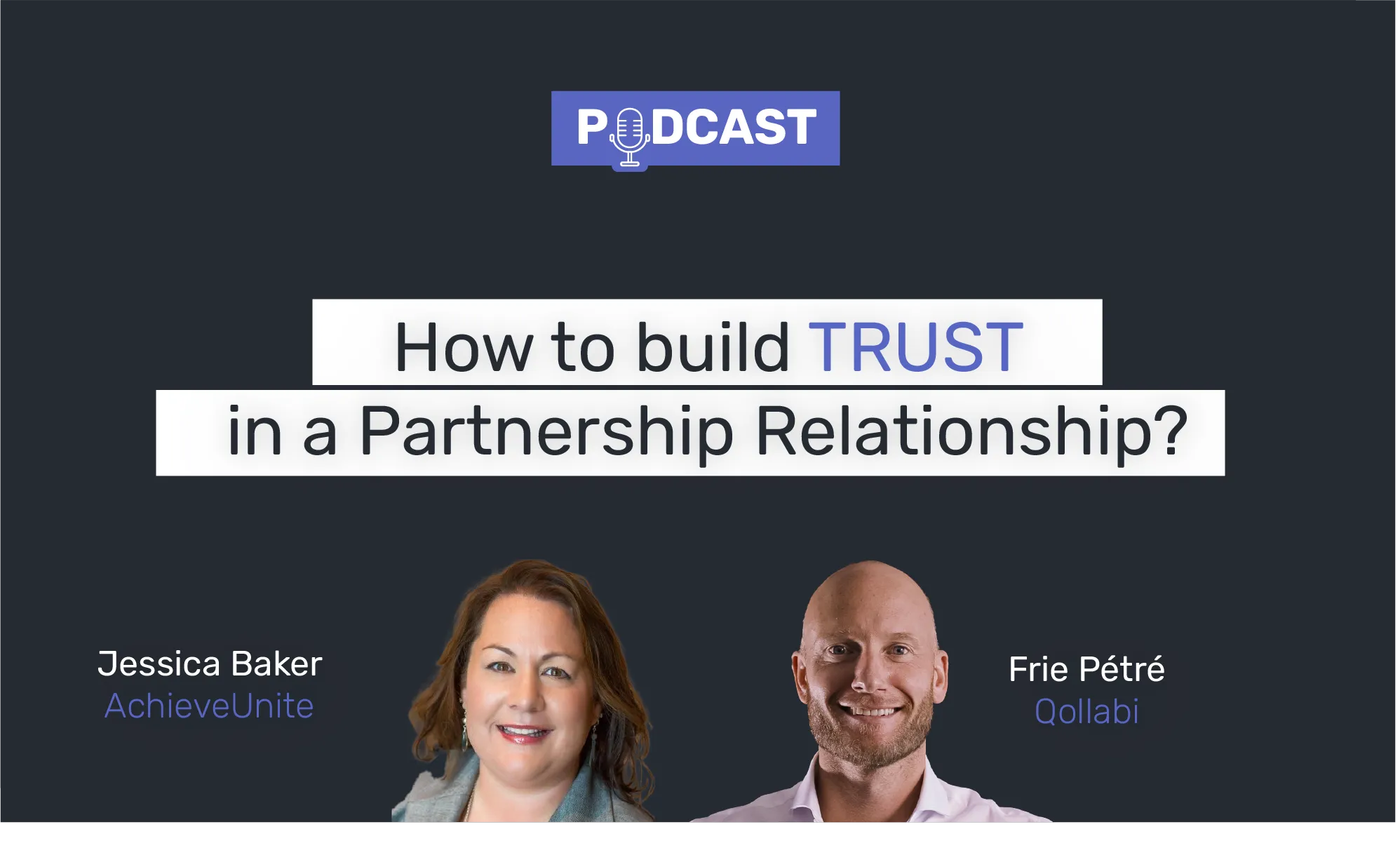
Every partner manager knows the feeling of unmet expectations with their partners. The challenge isn't just forming a partnership—it's building one that’s engaged and committed. When partners are disengaged or unaccountable, the cracks aren't just visible in lagging partner plan results; they're deeply felt.
In a recent podcast episode, Frie Pétré (CEO, Qollabi) sat down with the great Jessica Baker, Chief Program Officer for AchieveUnite. Their discussion centered around the importance of trust in partner relationships and how trust is the cornerstone to building commitment in partner relationships. Here are the top three takeaways from the conversation:
1. Focus on Quality, Not Quantity
Many partner organizations boast about having a large number of partners in their ecosystem, but Jessica emphasized that quality should always trump quantity. It's crucial to identify which partners are truly valuable and align with your goals. In reality, only a fraction of partners typically contribute significantly to a company's partner success. By segmenting and focusing on the most promising partners, organizations can streamline their efforts and resources for maximum impact.
2. Leading Indicators of Trust

While revenue is an essential indicator of success, it's a lagging indicator. Jessica stressed the importance of measuring leading indicators of trust. Building trust involves several facets, including engagement, collaboration, and alignment. AchieveUnite’s research revealed five distinct ways people build trust in B2B relationships, such as being strategizers, energizers, or exemplars. Understanding these trust-building styles can help individuals and organizations foster stronger partnerships and predict success.
3. The Power of Self-Reflection and Technology
AchieveUnite has developed the Partnering Quotient Index (PQi) assessment, which helps individuals understand their trust-building styles. This self-awareness can be a game-changer in forming effective partnerships. Additionally, technology plays a vital role in partner relationship management. Jessica highlighted the importance of partner technology
In conclusion, trust is the cornerstone of successful partner relationships. Organizations should focus on quality partners, leverage leading indicators of trust, and use self-awareness tools like PQi to strengthen their relationships. Moreover, technology can enhance efficiency and productivity in managing partner ecosystems. By implementing these insights, partner organizations can build more robust and mutually beneficial partner relationships.



